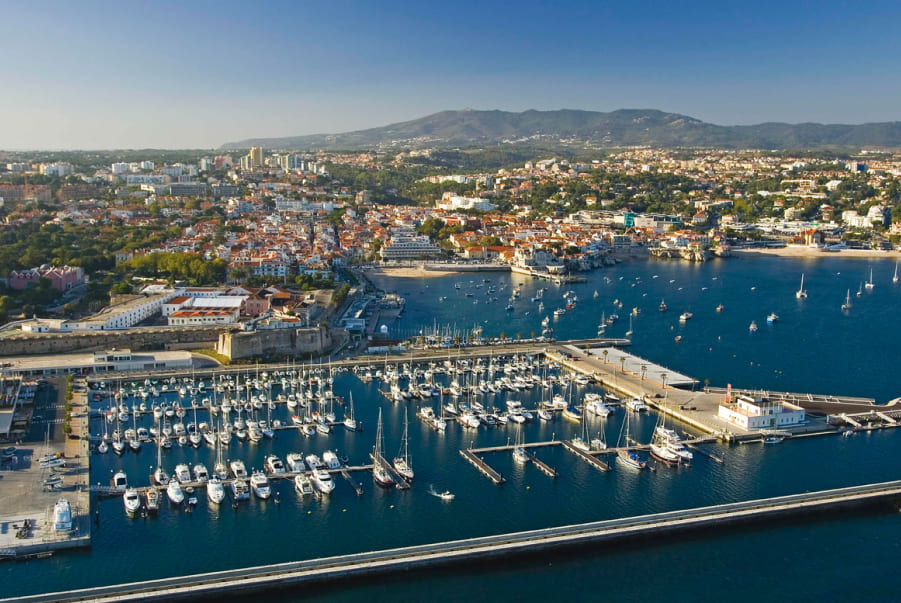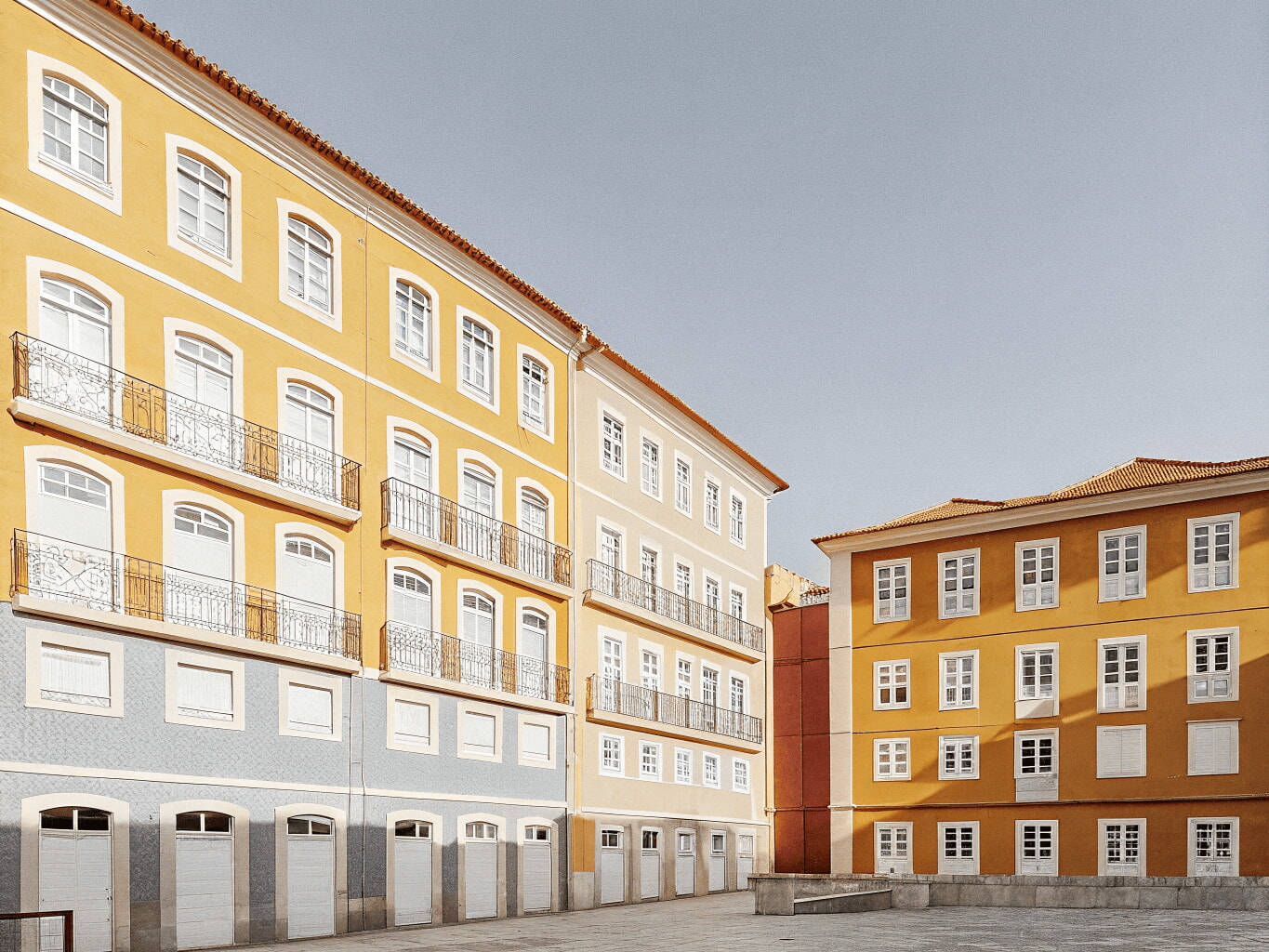Portuguese Digital Nomad Visa D8 for digital nomads: your path to a new life
Move to Cascais is your trusted partner and guide in the world of opportunities that Portugal offers. We are dedicated to supporting digital nomads and anyone looking to start a new life in this picturesque country. With a Portuguese visa for remote workers, you will get a unique chance to not only visit, but to fully integrate into a foreign society. It is the key to the door, opening wide horizons for you to live, work and study. Portugal attracts with its warm climate, friendly residents and high quality of life, making it one of the most desirable relocation destinations in Europe.
Portugal's digital nomad visa: the history of its emergence
The introduction of a visa for digital nomads in Portugal was announced by official government services. Information about the new document was also published on the websites of embassies, as well as on the official portal of the Ministry of Foreign Affairs.
The legislative changes regarding the rules for the entry and stay of foreigners were adopted on 30 September and will come into force on 30 October 2022. The main points of the law update include:
- Simplification of the immigration process for citizens of the Community of Portuguese Language Countries (CPLP).
- Introduction of a visa for applicants for a period of 120 days, renewable for further 60 days.
- Introduction of a visa for digital nomads in Portugal.
In addition, other minor changes have been made. However, of most interest is the third point, which we will look at in more detail.
Portuguese visa for remote workers: obtainment requirements
The process of obtaining a Portuguese digital nomad visa begins with a careful study of all the necessary steps and requirements. It is important to understand that the D8 has a validity period of four months. It is a temporary period during which the applicant must apply for a temporary residence permit. It is granted for a period of two years, with the possibility of a further extension until permanent residence permit is obtained or citizenship is applied for.
Move to Cascais' team of experts offers assistance throughout the entire process, from the initial application for a Portuguese visa for remote work to full integration into a foreign society. We provide support with all the necessary paperwork, advise you on your relocation and help you adapt to your new life in Portugal.
Portuguese digital nomad visa: income requirements
To successfully obtain a Portuguese digital nomad visa, the following information must be provided:
- Monthly income: To prove financial independence and the ability to support themselves in Portugal, Digital Nomad visa applicants need to demonstrate the fulfillment of Portuguese visa requirements — a stable income of at least 3480 EUR. This can be confirmed by official bank statements that reflect regular receipts for your work contract.
- Minimum bank account balance: The Portuguese Digital Nomad visa also includes the following income requirements: applicants must have an amount in their bank account sufficient to cover their living expenses for the first year. An amount of 9000 EUR or more is considered sufficient to ensure financial security in case of unforeseen circumstances.
- Certificate of no criminal record: This document is an integral part of the application process. The certificate must be issued by the competent authorities of the applicant's country of permanent residence.
Move to Cascais offers comprehensive services for the preparation and submission of documents, as well as advice on all matters related to obtaining a Portuguese visa for freelancers. We will help you meet all the above requirements, providing support at every step of the process.
Some services can be challenging to handle on your own. Trust our team of professionals to guide you through every step.
Living in Portugal: Benefits of the Portuguese D8 visa
Living abroad opens up new horizons thanks to the Portuguese D8 visa, which offers many advantages. It is the ideal choice for those looking to move to Europe without having to make a significant investment:
- Freedom of movement within the Schengen area: The Portuguese D8 nomad visa entitles you to move freely within the Schengen countries, indicating that you can travel without restrictions across 26 European countries, enjoying the cultural diversity and historical heritage of this unique region.
- The possibility of moving with your family and obtaining a residence permit: Allows you to move to Portugal with your loved ones. Your family can enjoy all the benefits of living in Europe, including high levels of education and healthcare. Obtaining a residence permit is easier as it does not require a large financial investment or property purchase.
- Path to naturalization: After five years of residence in the country, holders of the Portuguese Digital Nomad visa 2024 can apply for citizenship. This opens the door to a fulfilling life in the European Union with the ability to work, study and travel without any restrictions.
The Portuguese D8 visa is your chance to start a new life in one of the most attractive countries that combines a warm climate, a friendly population and a high quality of life. Move to Cascais can be your trusted partner in this process, offering support at every stage of the move.
Can you leave with your family with a Portuguese visa for remote work?
Obtaining a Portuguese D8 visa by the main applicant opens up the possibility for the family to accompany him or her using one of two methods:
- Collective application: The family can apply for the Portuguese Digital Traveller Visa 2024 at the same time as the main applicant. In this case, they are granted accompanying status upon arrival in Portugal. All family members join the main applicant for a joint interview at AIMA.
- Subsequent reunification: If the main applicant for a Portuguese remote work visa has already regularized their residence permit status, family members can come to Portugal later with another visa. Once they arrive, they must register with AIMA by telephone and join the main applicant for an interview.
Both options provide flexible pathways for families wishing to accompany the main visa applicant for digital nomads in Portugal.
What are the requirements?
The digital nomad visa includes a list of Portuguese visa requirements that need to be met. Firstly, there is documentary proof of family ties. In order to prove family ties to the main applicant, there are requirements for a nomad visa in Portugal:
- Marriage certificate: confirms the legal marriage between the spouses.
- Birth certificates: certifies family ties to children.
Secondly, financial guarantees. Wealth is a key factor to ensure family life in Portugal. The requirements for financial guarantees are as follows:
- For spouse: based on 2023 data for the Portuguese Digital Traveller visa, the income requirements are €6000.
- For a child: the required amount is €3000.
Thirdly, general financial requirements. It is important to realize that the amounts stated must be available in a bank account and cannot be part of the main applicant's salary. This means that for a family with one child, the total amount required in the account would be €9000 (€6000 + €3000) and the total family income must be at least €18000 per year.
The requirements for a Portuguese freelancer visa reflect the obligations required by law to ensure a decent standard of living for all family members after relocation. Move to Cascais can assist in preparing the necessary documents and advising on the entire relocation process, including financial guarantees.
Who are the family members?
Family members eligible to accompany the main applicant when applying for a Portuguese visa for remote work:
- Legal spouse.
- Minor or incapacitated children under the care of the couple.
- Minor adopted children of the main applicant or his/her spouse.
- Adult children under 21 years, dependent on the couple, unmarried and receiving education in a Portuguese educational institution.
- Parents or his/her spouse, if under their care.
- Minor siblings who are under their care.
- Common-law partner officially recognised under the law.
- Unmarried minor or incapacitated children, including adopted children of the common-law partner, who are under the legal guardianship of the partner.
All listed family members are eligible for a Portuguese nomad visa to accompany the main applicant, allowing them to live together, thus creating favorable conditions to maintain kinship ties and ensure social adaptation.






